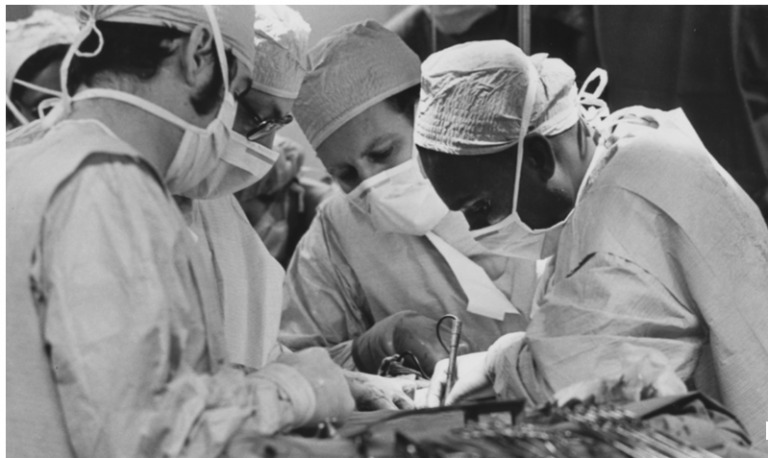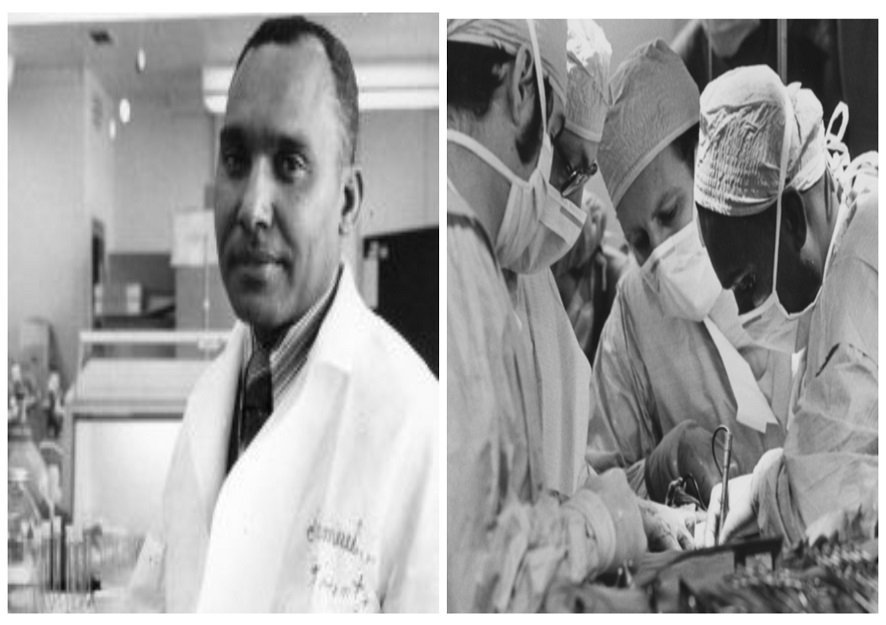Samuel Lee Kountz, an African American doctor and kidney specialist was the grandson of an enslaved woman.
Born in 1930, Kountz experienced academic adversity during his high school years prior to entering college at the University of Arkansas, but was not deterred from becoming a successful and renowned clinician.
Despite being denied from the two black medical schools in the United States at that time, Dr Kountz did not give up, as he went on to receive his masters in Chemistry in 1956 from the University of Arkansas in Little Rock, before entering the Medical School there as the first black student.
He was able to defy racial limitations and apply to a previously all-white institution with encouragement from Senator William Fulbright. Kountz was one of two blacks to graduate from the University of Arkansas School of Medicine in 1958.
‘A Century of Black Surgeons: The U.S.A. Experience’ noted that Dr. Kountz excelled despite racial segregation and demonstrated his academic and professional prowess. He completed postdoctoral training as a resident at Stanford University School of Medicine in the Department of Surgery in 1959-1962.
In 1961, he was reported to have participated in the first non-identical twin renal transplant in the United States with Roy Cohn during his residency at Stanford University.
He then received the Bank of America Giannini Fellowship Award from 1962-1963 to conduct research in transplantation and immunology at Hammersmith Hospital in London.
Kountz was appointed Assistant Professor of Surgery at Stanford after residency training. He made history in 1961, while working at the Stanford University Medical Center. According to Wikipedia, he performed the first successful Kidney transplant between humans who were non-identical twins. Also, under an appointment as a Fulbright Scholar, he performed Egypt’s first kidney transplant in 1965.
He went on to work with Folkert Belzer at the University of California, San Francisco, serving as his associate and assisted in the development of a renal transplantation and part of a team that performed more than 200 renal transplants, researched tissue typing, and developed standard procedures to prevent and treat graft rejection.

Their work led to preservation solutions and perfusion devices that are standard procedures in renal transplantation today.
Kountz became an international personality in academic surgery and transplantation. He published 154 peer-reviewed articles, with key research in nearly every area important to clinical renal transplantation: Use of methylprednisolone to prevent acute renal allograft rejection, measurement of GFR and creatinine in monitoring for allograft rejection, 6 donor tissue typing,4 and preservation of deceased donor kidneys according to the American College of Surgeons
He was named president of the Society of University Surgeons, and received honorary doctorates from the University of Arkansas and UCSF. In 1972, he was named chair of surgery at Downstate Medical Center in Brooklyn.
With Kountz as its chief of surgery, the hospital, at the time thought to be the busiest center in America, performed more than 500 transplantations.
In an era where the high cost of transplantation made it unavailable to the urban poor, especially the black community, Kountz supported federal funding for the treatment of end-stage renal disease, including kidney transplantation.
Kountz performed a living donor renal transplant on NBC’s Today television show in 1976, and after its airing, some 20,000 offered to serve as living donors nationwide.
He was said to have renovated an inner city facility and turned it into a leading transplant center. He is a celebrated surgeon and pioneer in organ transplants.
As a notable pioneer in kidney research and Renal Science, Dr. Kountz was said to have dedicated and contributed professionally to the medical field and accomplishments.
He was a member of organizations such as Alpha Omega Alpha, American Association for the Advancement of Science, American Society of Transplant Surgeons, elected to many editorial boards and many more affiliations.
Dr Kountz died in 1981 aged 51 from an illness he contracted during a visiting professorship in South Africa in 1977.
In his memorial, his colleagues have kept his legacy alive in schools, scholarships and awards named in his honor. The National Association for the Advancement of Colored People presents an Afro-Academic, Technological and Scientific Olympic program award annually in his memory.

